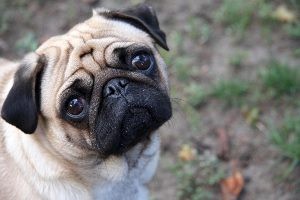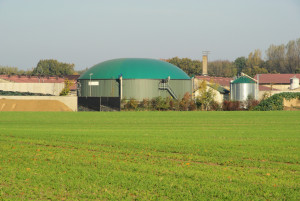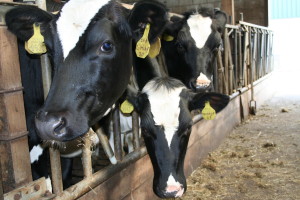Worldlog Hafta 10 – 2015
Hollanda uluslararası yasadıșı köpek ticaretinde merkezi konuma sahiptir. Bu sonuca Hollanda eyaleti Noord-Brabant radyo ve televizyon yayım kurumunun yaptığı bir araștırmada ortaya çıkmıștır. Brabant yayım kurumunun yaptığı araștırma yasadıșı köpek yetiștiricilerin ve tüçcarların elini kolunu sallaya sallaya bu iși yapabildiklerini ve özellikle Doğu Avrupadan gelen hasta köpek yavruları satıșından milyonlarIn kazanıldığını gözler önüne seriyor. Partimiz uzun zamandan beri köpek ticaretindeki büyük çarpıklıkların sonlandırılması için mücadele veriyor.Köpek yavruları çok dehșet șartlarda Doğu Avrupada üretiliyor ve nihayetinde yolculuktan sağ salim çikarlarsa Marktplaats (internet) üzerinden Hollandaya geliyorlar. Insanlar ne aldıklarına dair bir fikir sahibi değiller ve genellikle hasta köpeklere sahip oluyorlar. Yeni soru önergesi ile Millet Meclisine artık bu durumu ele atmaları için çagrıda bulundum. Artık önlem alma zamanıdır!
Geçenlerde yayınlanan Dietary Guidelines Advisory Committee’in raporuna göre Amerikanlar daha az et tüketmelidirler. Komisyon, Amerika bașkanı Obama’nın isteği üzerine yeni gıda yönetmeliği üzerinde çalıșmaktadır. Sağlık sektörünün yanısıra ,çevrede daha az et tüketmek için çok önemli bir sebep olarak gösterilmektedir. Bu mükemmel bir haber, ancak herkes bu haberle mutlu değil.
Hollanda’da da daha az et tüketilmelidir. Yoğun haycancılık sebebiyle yıllardır gübre fazlalılığı mevcuttur. Hükümet gübre sorununu çözmek için çok yüksek meblağlarda sübvansiyon sağlıyor. Gübre fabrikaları çok tartıșmalıdır. Ziraatta devir daim ve gübrelerin ișlenmesi ile çok az enerji sağlamaktadır. Bunun yanısıra gübre fabrikları çevre için örneğin o çevrede insan sağlığı icin büyük bir risk faktöru teșkil edebilirler. Gübre sorununu çözmenin tek yolu, hayvan sayısını azaltmaktır. Mesai arkadașım Esther Ouwehand’ın dediği gibi: “daha az hayvan, daha az gübre ve daha az problem.”
Bizi Avrupa Parlementosunda temsil eden, mesai arkadașım Anja Hazenkamp klonlanmıș hayvanlardan sağlanan et ve süt tüketimini yasaklanması için çağrıda bulunmuștur. Bu öneri 2013 yılından beri beklemeye alınmıștır. Daha bizim Avrupa Parlementosunda sandalyemiz olmadan!
Güzel haber var bu hafta. Seneler sonra tutucu ziraat yönetiminden sonra Fransa bașbakanı çiftcileri agro-ekoloji için teșvik etmektedir. Repörtajı esnasında daha az zarar veren, bilim ve teknolojiden istifade ederek hammadde kıtlığını tekrar değerlendirmek gerektiğini dile getirmiștir. Tebrikler Fransa, șimdi sıra Hollanda’da!
Funfact: Yakında (18 mart) Eyalet Meclisi ve Hollanda Sular idaresi seçimleri gerçekleștirilecektir. Erkekler seçim listelerinde yüzde 69,4 ile çoğunluğu teskil etmektedir. Sadece bizim partimizde bayanların sayısı bayları geçmektedir: % 53’ü bayan!
Gönülden selamlarımla,
Marianne
The Netherlands are a key player in the international rogue trading of dogs. This has been shown by a new investigation conducted by a regional broadcaster from the Dutch province of Noord-Brabant. The Omroep Brabant broadcaster investigation has confirmed the numerous signs that unscrupulous breeders and traders have free play and that millions are earned on trading sick puppies, mostly from Eastern Europe. Our party has long been calling for attention for the large-scale abuses in the dog business. Puppies are bred under appalling conditions in Eastern Europe and then end up in the Netherlands via Marktplaats, provided they survive the trip. People don’t know what they are buying and often end up with critically ill dogs. With new Parliamentary Questions, I have called the government to finally do something about this. Really, now is the time for action!
Americans should cut down on eating meat. That is what it says in a recently published report of the Dietary Guidelines Advisory Committee. On the instructions of President Obama, the Committee has worked on new dietary guidelines for Americans. In addition to health reasons, the environment is mentioned as a very important reason to cut down on eating meat. I think this is great news, but not everyone is happy about it.
Meat consumption should also be reduced drastically in the Netherlands. Due to intensive livestock farming, we have had to contend with a huge manure surplus for years. The government has been trying to solve this problem by providing substantial subsidies for fermentation of manure. However, these manure plants are very controversial. Agricultural cycles are even more disrupted and manure fermentation hardly yields any energy. In addition, manure plants entail major risks for the environment, for example, with regard to the health of residents. The only solution to the manure problem is a reduction of livestock. As put by my colleague Esther Ouwehand: “Fewer animals, less manure, fewer problems.”
Anja Hazekamp, my colleague who represents us in the European Parliament, has called to finally ban the consumption of meat and milk from cloned animals. This proposal has been on the shelf since 2013, which was even before we had a seat in the European Parliament!
Good news this week. After years of conservative agriculture policies, the French president, François Hollande, pushes farmers towards agro-ecology. In an interview, he spoke about using less harmful products and obtaining benefit from science and technology to re-value scarce resources. Chapeau France, now it’s time for the Netherlands to follow suit!
Fun fact: Soon (18 March), there will be elections for the Provincial Council and the Dutch water boards. With an average of 69.4 per cent, males dominate the lists of candidates. The only party that has more female than male candidates is our party: 53 per cent are female!
Kind regards,
Marianne


